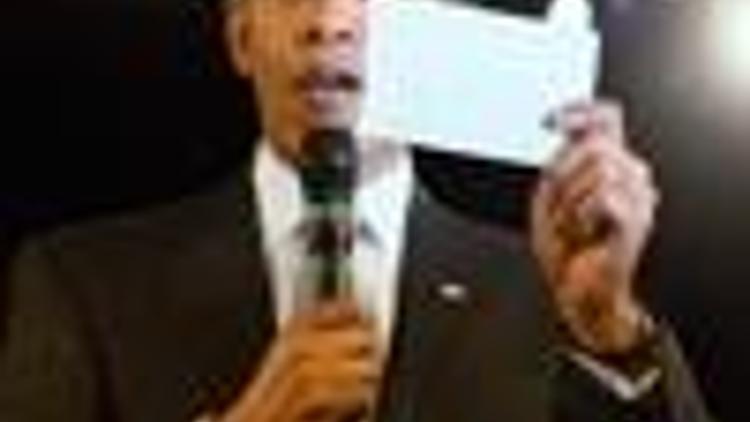Obama says his letter to Medvedev aims to reboot ties, but denies deal
Güncelleme Tarihi:

U.S. President Barack Obama revealed Tuesday he had sent a long letter to his Russian counterpart in a bid to "reboot" ties and join forces on thorny issues like Iran, nuclear arms and missile defense.
Relations between Cold War foes
But in an early gesture from his fledgling government, Obama acknowledged he recently wrote to Russian President Dmitry Medvedev about a range of international issues.
In his first six weeks in office, "we’ve had a good exchange between ourselves and the Russians. I’ve said that we need to reset or reboot the relationship there," Obama said as he met with British Prime Minister Gordon Brown.
He said he sent Medvedev a "lengthy letter talking about a whole range of issues, from nuclear proliferation to how are we going to deal with a set of common security concerns along the Afghan border and terrorism.”
"So my hope is, is that we can have a constructive relationship where, based on common respect and mutual interest, we can move forward."
But the president denied a report in The New York Times Tuesday that in exchange for
The Times report "didn’t accurately characterize the letter," Obama said.
"The way it got characterized I think was as some sort of quid pro quo," he said.
"It was simply a statement of fact that I’ve made previously, which is that the missile defense program, to the extent that it is deployed, is designed to deal with not a Russian threat but an Iranian threat."
CLINTON-LAVROV TALKS
The revelations of Obama’s letter to Medvedev come ahead of the first face-to-face talks between U.S. Secretary of State Hillary Clinton and Russian Foreign Minister Sergei Lavrov in
Administration officials took pains to stress Tuesday there had been no change in the U.S. position on the shield, due to be installed in Poland and the Czech Republic, and vehemently opposed by Moscow, which fears it is aimed at Russia.
"I told the Russians a year ago that if there were no Iranian missile threat, that there would be no need for ... the third missile defense site in Europe," Defense Secretary Robert Gates said.
"I don’t think at all that this is trying to put the Russians on the spot. I think it is trying to reopen a dialogue and say, we are open to talking with you about how we address this problem."
A State Department official, who asked to remain anonymous, said it was possible the plans for a shield could be reviewed depending on the prevailing global situation.
"The Obama administration will go forward with missile defense based on several criteria ... Does it work? Is it cost effective and is the Iranian threat constant? What is the threat?" the official said.
"We could re-evaluate what our need for missile defense is. That is not a quid pro quo. That is a statement of fact."
Medvedev however seemed cool to any bargaining, saying it was "not productive" to link talks over the shield to
"If we are to speak about some sort of exchange, the question has not been presented in such a way, because it is not productive," Medvedev said during a trip to
But he acknowledged: "Our American partners are ready to discuss this problem. This is already good."
Richard Haas, president of the Council on Foreign Relations, told lawmakers that enlisting
"
He added he would support the

